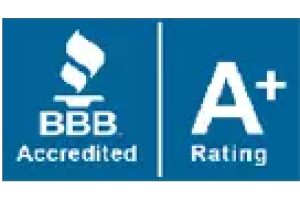Trial Lawyers
Accounting Malpractice
People who suffer financially due to an accountant’s violation of accounting by breaching contracts, giving bad advice, or conducting improper audits could be indicative of them being victims of accounting malpractice. Accountants are highly regulated by guidelines established by the Generally Accepted Accounting Principles (GAAP), Generally Accepted Auditing Standards (GAAS), and Public Company Accounting Oversight Board (PCAOB) as well as the 2002 Sarbanes-Oxley Act which developed the Public Company Accounting Oversight Board, who’s sole purpose is to oversee and regulate accounting firms.
Accounting malpractice can be the result of auditors who are tasked with detecting internal weaknesses and performing fraud risk assessments, but do so poorly or inaccurately. The legal elements that constitute an accountant malpractice suit are:
- Accountant owes of care to his clients and in some cases others who benefit or rely on the accountants work;
- Plaintiff suffers considerable financial loss;
- The accountant does not comply with the standard of care as established by the industry rules and regulations.
- Professional accountant’s breach of duty being proximate cause of damages has to be proven by plaintiff
Some situations that can lead to accounting malpractice are:
- Federal and state securities laws violations by auditors
- Acting outside GAAP, GAAS and PCAOB guidelines
- Inaccurate advice on accounting matters
- Improperly kept financial documentation
- Wrongful certification of financial statements
- Embezzlement
- Failure to detect fraud and faulty audits
- Inaccurate tax returns
- Faulty estate planning advice
- Significant accounts payable and receivable errors
Accounting professionals must maintain “professional skepticism” about red flags that can contribute to fraud when and must provide “reasonable assurances” concerning the veracity financial statements they prepare that is used in making financial decisions. The red flags are generally present when material misstatements are made. Red flags that accounts can reasonably be held responsible to uncover include:
- Management or board member’s personal financial situation is greatly affected by the entity’s financial performance
- Profitability is threatened by economic, industry, or entity operating conditions.
- Third party expectations on requirements lead to considerable management pressure.
- Disproportionate pressure to meet financial targets, including sales or profitability incentive goals.
Accountants Duty to Address Ethical Conflict
The American Institute of Certified Public Accountants (“AICPA”) Code of Professional Conduct Section 1.000.020 addresses how CPAs should respond to certain ethical conflicts. If a CPA suspects that a client is engaged in potentially fraudulent activity, the CPA would be required to take the necessary steps to gain a better understanding of the activity to determine if it was indeed fraudulent.
If that investigation does not provide appropriate clarification, the CPA would alert the client to his or her concerns in an effort to rectify the issue. The standard provides that if the client refuses to engage in discussion or to take appropriate action, the CPA would need to consider whether to discontinue the client relationship.
The AICPA Code of Professional Conduct Section 1.400.001 “Acts Discreditable” provides: “A member shall not commit an act discreditable to the profession.”
The International Ethics Standards Board for Accountants (“IESBA”) Code of Ethics for Professional Accountants is another standard that defines the duties owed by Accountants
Section 100.1 of the IESBA provides:
A distinguishing mark of the accountancy profession is its acceptance of the responsibility to act in the public interest. Therefore, a professional accountant’s responsibility is not exclusively to satisfy the needs of an individual client or employer. In acting in the public interest, a professional accountant shall observe and comply with this Code.
Section 110 of the Code provides:
A professional accountant shall not knowingly be associated with reports, returns, communications or other information where the professional accountant believes that the information: (a) Contains a materially false or misleading statement; (b) Contains statements or information furnished recklessly; or (c) Omits or obscures information required to be included where such omission or obscurity would be misleading.
When a professional accountant becomes aware that the accountant has been associated with such information, the accountant shall take steps to be disassociated from that information.
















